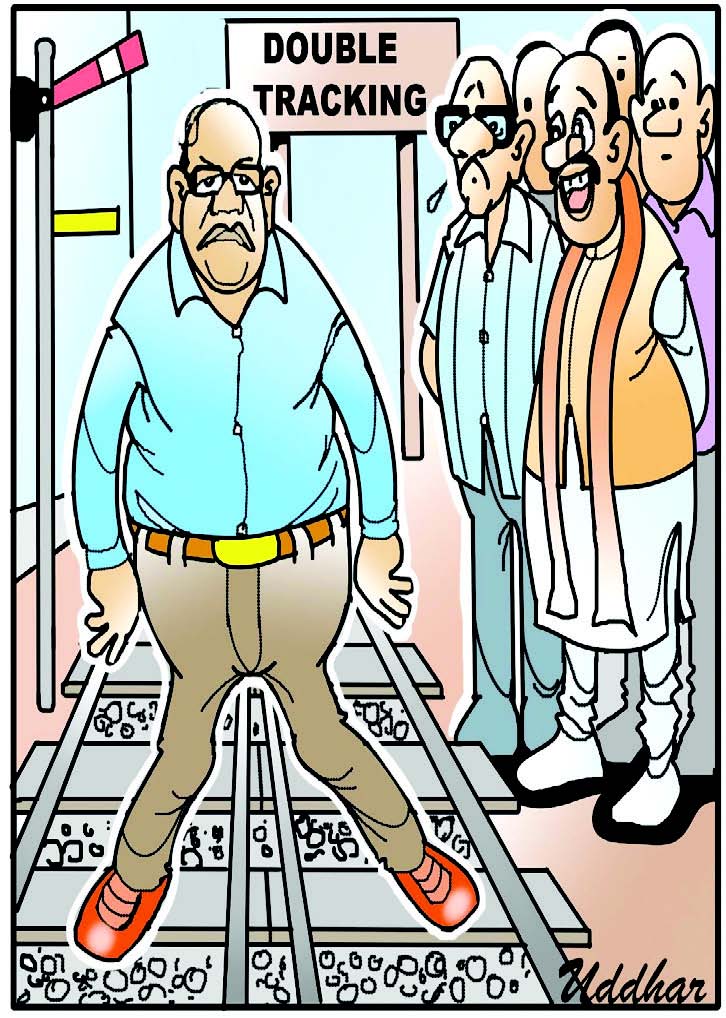Over 55,000 pending court cases in a State that is roughly inhabited by 15 lakh people tells a sad story – that one in every 15 Goenkars (on mathematical average) may be currently fighting a legal battle in Goa, and 14% of them are senior citizens. It is depressing to know that senior citizens drag themselves to court through the sun and rain, often alone, and sometimes journeying long distances via public transport, only to be kept waiting for justice.
Their skin sagged, their eyes sunken and hands trembling, they wait in hope of the judge passing a favourable order. Shockingly, among pending cases in lower courts, around 8,000 have been filed by senior citizens. Considering that the average lifespan of a civil case in India is 10-12 years, it’s a shame no one advised them that death may arrive at their doorstep before a court judgment.
It is convenient to point fingers when learning of these alarming statistics – but I would rather focus on fixing the problem. The truth is that the pursuit of justice has never guaranteed favourable results to aggrieved parties; and, even when achieved, eventually, it often doesn’t feel truly worthy of the time, money and mental health invested in the same. Well, if you are not convinced, try asking the people involved in the 220-odd cases that are pending “justice” in lower courts in Goa since the 1980s.
The pursuit of justice is one long-winding, uncertain and bumpy road, where the delivery of justice, though objectively delivered by the judge, may seem subjective to the receiver. The party that loses the case is surely disgruntled and could press the appeal button, but you won’t be surprised to learn that even winning parties feel exhausted, disheartened and unsatisfied when they realise what they finally got is far from what they expected.
Comparatively, the pursuit of resolution, manifested in processes such as Negotiation, Mediation or Conciliation involves the collective usage of objective criteria to collectively create sustainable solutions to the conflicting situation. The pursuit of resolution asks parties in a dispute to move from “Who is Wrong” to “What is Wrong”; to transform from a vengeful attitude to a collaborative approach; from fuelling chaos to seeking clarity and most importantly, from demanding punishment for the other to achieving peace for oneself.
The pursuit of resolution demands more from the parties and their lawyers, because it challenges them to get out of their comfort zones, where they can’t easily blame a bad judgment on the judge, witnesses or other authorities concerned with the case. In my TEDx Talk, presented a few years ago, I spoke passionately about how a lawyer plays a massive role in helping senior citizens to choose the right path to resolve their civil disputes.
I suggested some questions every party must ask the lawyer before filing a civil suit in court.
lWhat are the chances of a favorable verdict in court?
lHow many similar cases have you won?
lWhich judge would be assigned to our case?
lHow long would the entire process take?
lHow much will it cost me, financially?
lWhat kind of documentation is involved and how much will remain public?
lHow many times will I have to appear in court?
lCan the media report about the details of my case?
lWhat are the other side’s chances of a favourable verdict?
Every lawyer must answer these questions for their parties, especially to senior citizens, whether or not, they are aware of the consequences. Upon receiving acceptable responses to the above questions, it is pertinent to inquire with your lawyer about Mediation and compare the timeline, costs, choice of neutral third-party, privacy and your mental and psychological investment in Mediation to the adversarial process of litigation.
If you feel your lawyer isn’t knowledgeable, trained and experienced enough to represent you in Mediation and is, therefore, discouraging you from it, then find an updated, skilled and ethical lawyer who is competent to negotiate for you in a Mediation and also capable of arguing your case in court. This may seem difficult for senior citizens, many of whom do not have the company of relatives to guide and encourage their decisions in good faith. Fear not, help is on its way – reach out to Nirmala Institute of Education, Altinho-Panaji and Pedro Arrupe Institute, Raia, who are collaborating to provide Mediation and Reconciliation services those whose lives are languishing in litigation.
(Jonathan Rodrigues
is a Certified Mediator
based in India / UK)
